Networking to Enhance Development 2024
In-Person Only | Thursday, April 18

In-Person Only | Thursday, April 18
The annual Networking to Enhance Development (NED) Conference is a free professional development conference for and by research coordinators. Participation in NED allows research coordinators to develop contacts, share ideas, and learn from peers.
This year’s conference will be in-person only, held Thursday, April 18 in Seattle at UW Medicine South Lake Union. Our theme is SPRING FORWARD: Strengthening Skills and Engaging with Colleagues.
The NED Conference is organized by the Institute of Translational Health Sciences and is a collaboration between the University of Washington, Fred Hutch, and Seattle Children’s.
We have archived previous years’ conference materials at the main NED page.
DATE: Thursday, April 18, 2024
TIME: 7:30am–1:45pm Pacific
LOCATION: UW Medicine South Lake Union C-Building, Orin Smith Auditorium (850 Republican St, Seattle, WA 98109)
Join us at UW Medicine SLU to connect with your peers to learn tools for your research career through our keynote session Research in Rural and Frontier Communities: Lessons from the Journey of a Community Research Associate in Montana, delivered by Erica M. McKeon-Hanson, MPH, MSEd.
Following the keynote, we will have 3 rounds of hour-long breakout sessions (see below for descriptions), and we’ll end the day with a brief closing session, lunch and networking. Download the full event agenda here.
| 7:30–8:00am | Sign In, Coffee & Networking |
| 8:00–9:00am | Welcome & Keynote |
| 9:05–10:05am | Breakout Sessions — Round 1 |
| 10:05–10:20am | BREAK |
| 10:20–11:20am | Breakout Sessions — Round 2 |
| 11:20–11:35am | BREAK |
| 11:35am–12:35pm | Breakout Sessions — Round 3 |
| 12:35–1:45pm | Closing, Lunch & Networking |

NED 2024 Keynote Speaker
Erica M. McKeon-Hanson, MPH, MSEd
Would you like to contribute to research in rural or frontier settings? Join us for this keynote presentation to learn about the experience of a community research associate who works primarily in rural and frontier communities in Montana. We will discuss the characteristics of rural and frontier communities and learn about the role of a community research associate as part of the research team. In addition, you will hear real world examples from the perspective of a community research associate as well as best practices, lessons learned and recommendations for pursuing research activities in rural and frontier settings.
At the end of the presentation, attendees will be able to:
Erica McKeon-Hanson, MPH, MSEd (she/her/hers) is a community research associate with the Montana IDeA Community Engagement Core (CEC) at Montana State University (MSU). The CEC is a shared core between the Montana IDeA Network of Biomedical Research Excellence (MT INBRE) and the Center for American Indian and Rural Health Equity (CAIRHE) . The experiences of her youth led Erica to a career focused on equity in health and education among rural and tribal populations. Prior to MSU, Erica spent more than a decade at Stone Child College (SCC) and Aaniiih Nakoda College (ANC), both tribal colleges located on Native American Reservations in northcentral Montana, where she served as science and allied health faculty conducting research while also teaching. During her tenure at ANC, her research focused on early childhood carries among rural and tribal community populations utilizing a community-based participatory research (CBPR) framework. Erica also served for more than six years as the inaugural Director of the Little River Institute and Project Director for the U.S. Department of Education’s Native American-Serving NonTribal Institutions (NASNTI) project at Montana State University- Northern (MSUN), the first of its kind in Montana. She also serves as a member of the Hill County Board of Health, her local city-county health board, having spent the past three years as the board Vice Chair. Erica holds a BS in biology from the University of Mary, MSEd in Learning Development from MSUN and an MPH from the Johns Hopkins University Bloomberg School of Public Health with a special emphasis on rural and Indigenous health. She resides in Havre, MT with her husband of 22 years and their three daughters.
Note: Stephanie Kraft was unable to attend NED 2024 and Kara Cooper presented her breakout material in both session 1A and 3C.
In this session, attendees will learn about ethical benchmarks for clinical research and practice applying them to real-life case examples, with a focus on the role of researcher-participant interactions.
 Stephanie A. Kraft, JD, is an Assistant Professor at the Treuman Katz Center for Pediatric Bioethics and Palliative Care at Seattle Children’s Research Institute and the University of Washington School of Medicine Department of Pediatrics. She conducts conceptual and empirical research on issues related to ethics and equity in the conduct of clinical research and the implementation of emerging biomedical technologies. She is also part of the ITHS Research Bioethics Consultation service. Her primary research interests are in understanding how people make decisions about research participation and improving how research teams demonstrate respect to and build trust with potential participants, especially among marginalized patient populations.
Stephanie A. Kraft, JD, is an Assistant Professor at the Treuman Katz Center for Pediatric Bioethics and Palliative Care at Seattle Children’s Research Institute and the University of Washington School of Medicine Department of Pediatrics. She conducts conceptual and empirical research on issues related to ethics and equity in the conduct of clinical research and the implementation of emerging biomedical technologies. She is also part of the ITHS Research Bioethics Consultation service. Her primary research interests are in understanding how people make decisions about research participation and improving how research teams demonstrate respect to and build trust with potential participants, especially among marginalized patient populations.
In this session, participants will learn about the various types of research interviews and differences between them. Participants will also learn best practices and tips in conducting research interviews with vulnerable populations.
 Morgan (Research Manager, Division of Allergy and Infectious Disease, University of Washington) has over a decade of experience coordinating and conducting research interviews with vulnerable populations in the United States. Two most recent projects of note include The Male Relationships Study (Johns Hopkins University; PI: R. Arrington-Sanders)and Project Needle Exchange Utilization Survey (NEXUS) (University of Washington; PI S. Glick). As part of The Male Relationships Study, Morgan coordinated and assisted in the collection of qualitative data from 160 research interviews as part of this longitudinal study focused on sexual, racial and gender minority adolescents aged 15-19 year old. He is currently the coordinator of Project NEXUS, a CDC funded surveillance demonstration project, which is actively conducting research interviews via Zoom with people who inject or use drugs accessing syringe services programs across the country. Morgan oversees a team of 12 research interviewers with an end goal of 1800 research interviews conducted. Morgan is a native New Yorker with a background in anthropology and sociology and currently lives in Seattle, WA.
Morgan (Research Manager, Division of Allergy and Infectious Disease, University of Washington) has over a decade of experience coordinating and conducting research interviews with vulnerable populations in the United States. Two most recent projects of note include The Male Relationships Study (Johns Hopkins University; PI: R. Arrington-Sanders)and Project Needle Exchange Utilization Survey (NEXUS) (University of Washington; PI S. Glick). As part of The Male Relationships Study, Morgan coordinated and assisted in the collection of qualitative data from 160 research interviews as part of this longitudinal study focused on sexual, racial and gender minority adolescents aged 15-19 year old. He is currently the coordinator of Project NEXUS, a CDC funded surveillance demonstration project, which is actively conducting research interviews via Zoom with people who inject or use drugs accessing syringe services programs across the country. Morgan oversees a team of 12 research interviewers with an end goal of 1800 research interviews conducted. Morgan is a native New Yorker with a background in anthropology and sociology and currently lives in Seattle, WA.
As research coordinators, you work on research studies involving drugs, medical devices, and diagnostics. Your job is to enroll patients in studies, but you’re also the first line of defense protecting patients from inappropriate therapies and procedures and preventing bad outcomes resulting from poor patient selection. How and when do you make your voice heard? When do you take a stand? Who can help? How do you steer the ship when you’re not the captain?
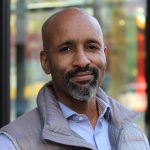 Teddy Johnson is the Director of Technology Development for ITHS, and he runs the Technology Development Center, guiding researchers from the bench to successful startup company formation. Early in his career, he began managing medical device research and orchestrated numerous clinical studies throughout Europe, Latin America, and the US.
Teddy Johnson is the Director of Technology Development for ITHS, and he runs the Technology Development Center, guiding researchers from the bench to successful startup company formation. Early in his career, he began managing medical device research and orchestrated numerous clinical studies throughout Europe, Latin America, and the US.
Having trained dozens of physicians and observed over 1000 surgical and cath lab procedures, Teddy is no stranger to the realities of clinical care. Over his 25 year industry career, Teddy served start-up and Fortune 500 companies in research, design, clinical, marketing, and sales leadership roles; developing imaging, interventional, surgical, pharmaceutical, and digital health products.
With hard work, good judgment, and a little luck, Teddy has celebrated 2 IPO’s and 4 acquisitions, while earning numerous patents and commercializing dozens of new products worldwide. As a way of giving back, Teddy teaches in the STEM and Biomedical Regulatory Affairs Master of Science (BRAMS) Programs at the University of Washington and mentors startup CEOs in Seattle and the Silicon Valley.
What can you do with hierarchy as a scientific research professional? Join this discussion to explore and strategize ways to manage this sometimes-discontented elephant on research teams.
Erin Abu-Rish Blakeney, PhD, RN, is co-lead of the UW ITHS Team Science Core and a Research Associate Professor in the Department of Biobehavioral Nursing and Health Informatics at the UW School of Nursing. Erin’s program of research focuses on how teams work together and how their teamwork influences the production of new knowledge; care organization, delivery, and outcomes; and translation of research into practice along the bench to bedside spectrum.
Thus far in Erin’s career, she has worked in multiple clinical and research roles, including: as a phlebotomist/ laboratory assistant in rural primary care clinics, as a nurse in hospital, home health, and community health settings, as a research scientist/nurse coordinator of a grant funded mobile health van, as a graduate student research assistant, and as a co-investigator and principal investigator on studies as research faculty.
Meeting recruitment goals and timelines is a consistent challenge, and the responsibility of developing recruitment plans and materials typically falls to the Research Coordinator. This session will provide practical guidance and tips to develop effective recruitment plans, track and measure success, and create eye-catching recruitment materials.
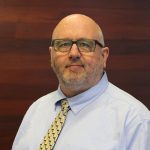 Michael Donahue, BS, CCRC, is a Research Coordinator at the University of Washington’s Clinical Trial Office and Institute of Translational Health Sciences. Mike has 25 years of experience in clinical research, and provides a wide-range of general research coordination, regulatory support, and study monitoring to investigators; he has become skilled in problem solving recruitment and retention issues. He has provided extensive support for many clinical research programs, including Cardiology, Surgery, Oncology, Otolaryngology, Radiology, Rheumatology, Urology, and Rehabilitation Medicine.
Michael Donahue, BS, CCRC, is a Research Coordinator at the University of Washington’s Clinical Trial Office and Institute of Translational Health Sciences. Mike has 25 years of experience in clinical research, and provides a wide-range of general research coordination, regulatory support, and study monitoring to investigators; he has become skilled in problem solving recruitment and retention issues. He has provided extensive support for many clinical research programs, including Cardiology, Surgery, Oncology, Otolaryngology, Radiology, Rheumatology, Urology, and Rehabilitation Medicine.
6 MBSLIDE PRESENTATION 2B – Recruitment Strategizing – Mike Donahue162 KBDonahue NED 2024 Handout – Recruitment_strategizing_worksheet_4.8.2484 KBDonahue NED 2024 Handout – Recruitment Material Tips126 KBDonahue NED 2024 Handout – Participate in Research 3.20.24146 KBDonahue NED 2024 Handout – Incentives summary 4.2.24
A discussion amongst research coordinators and encouraging one another’s voices regarding their experiences and perspectives for all subjects related.
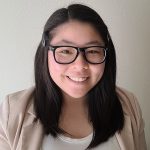 Evangeline Chang is a research coordinator at the UW Alzheimer’s Disease Research Center, coordinating the Biogen ENVISION trial. She previously worked with oncology patients and coordinated clinical trials at the UW Cancer Vaccine Institute as a clinical research coordinator. Outside of work, Evangeline enjoys bullet journaling, cooking and trying new recipes, and spending time with family and her three cats. She is also interested in studying linguistics and stoicism.
Evangeline Chang is a research coordinator at the UW Alzheimer’s Disease Research Center, coordinating the Biogen ENVISION trial. She previously worked with oncology patients and coordinated clinical trials at the UW Cancer Vaccine Institute as a clinical research coordinator. Outside of work, Evangeline enjoys bullet journaling, cooking and trying new recipes, and spending time with family and her three cats. She is also interested in studying linguistics and stoicism.
804 KBSLIDE PRESENTATION 2C – What Really Matters – Evangeline Chang135 KBWORD CLOUD 2C – What Really Matters – Evangeline Chang
It is essential for research staff to understand fundamental concepts and terminology common to clinical trial protocols. This session will go over sample protocols and describe strategies for reading protocols to maximize study success.
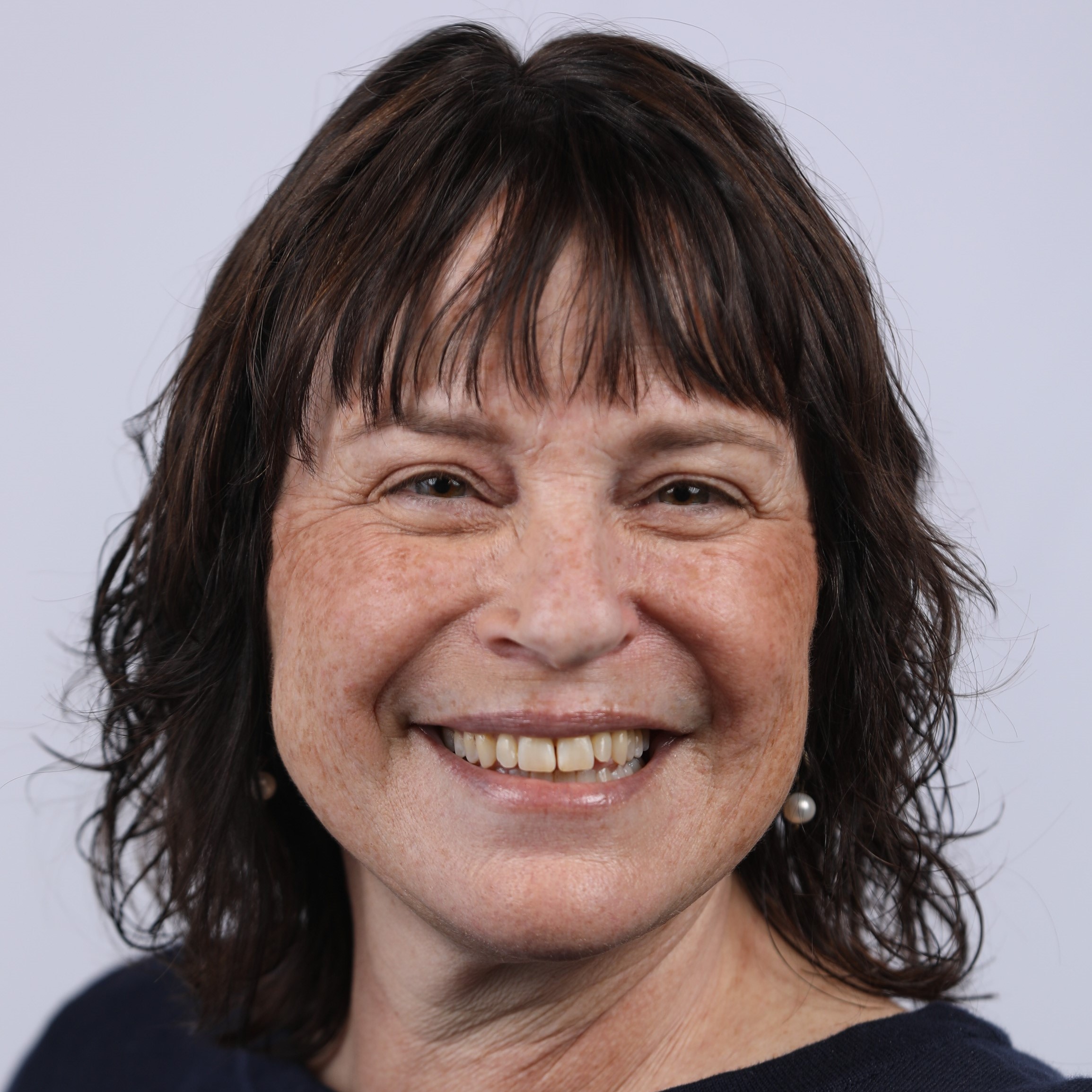 Amy Good, PhD, is a Clinical Research Manager in the Department of Neurology at the University of Washington and focuses on research of Huntington’s Disease. Amy received her PhD in Clinical Psychology with a specialization in rehabilitation and behavioral medicine. She has been involved in health-related research for 20 years.
Amy Good, PhD, is a Clinical Research Manager in the Department of Neurology at the University of Washington and focuses on research of Huntington’s Disease. Amy received her PhD in Clinical Psychology with a specialization in rehabilitation and behavioral medicine. She has been involved in health-related research for 20 years.
2 MBSLIDE PRESENTATION 3A – The Protocol Review – Amy Good283 KBAmy Good Handouts – Breakout 3A – The Protocol Review
Join this discussion with REDCap experts to learn more about the use of REDCap in your work including how to head-off common challenges before they occur. If you have a certain question, area of interest, or a REDCap challenge that’s keeping you up at night, come ready to ask/share to get some ideas and feedback from the REDCap team. Please note – this session is for general discussion and guidance; admins will not be able to provide project-specific support.
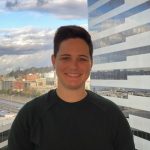 Gretchen Kuhn is a REDCap administrator with the University of Washington. Prior to moving into REDCap, they worked as a research coordinator for two years with Washington State University. Gretchen is from Virginia so they don’t understand the UW/WSU rivalry but would love to hear your opinions.
Gretchen Kuhn is a REDCap administrator with the University of Washington. Prior to moving into REDCap, they worked as a research coordinator for two years with Washington State University. Gretchen is from Virginia so they don’t understand the UW/WSU rivalry but would love to hear your opinions.
Adam Mahama is the Lead REDCap administrator with the University of Washington. Prior to moving into REDCap, he worked as a REDCap Administrator/IT Technician for four years with Washington State University. He went to WSU and grew up in Pullman, Washington so he understands this rivalry VERY well.
Join this small group discussion facilitated by Kara Cooper, training manger, to learn about, discuss, and explore ideas on career pathways within the field of research.
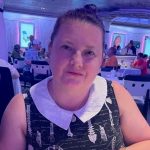 Kara Cooper is the training manager for the Research Integration Hub. She has twenty years of experience in lab and clinical research, most recently in the Division of Gastroenterology at Seattle Children’s. In her new role, she is creating centralized training resources for clinical research professionals and also working to create career development pathways with local community colleges to improve the accessibility to “the best job no one has heard of.”
Kara Cooper is the training manager for the Research Integration Hub. She has twenty years of experience in lab and clinical research, most recently in the Division of Gastroenterology at Seattle Children’s. In her new role, she is creating centralized training resources for clinical research professionals and also working to create career development pathways with local community colleges to improve the accessibility to “the best job no one has heard of.”
The Institute of Translational Health Sciences is able to provide funding for up to ten travel awards of $500 each for attendees outside of the Western Washington area to participate in this in-person conference. Apply for these funds when you register. The ITHS education team will follow-up via email with those who have requested a travel award. Travel award decisions will be communicated by end of day Friday, March 22nd.
Please note: registration will likely fill quickly, but we’re saving space for those who receive travel awards. If you don’t manage to get on the registration list, please sign up for the waiting list and apply for those funds if you’re in the WWAMI region/outside of Western Washington.
Early registration for those who were on the NED 2023 waitlist will open March 18 at 8am PDT.
General registration for NED 2024 will open March 19 at 8am PDT.
If you have any questions about NED, please contact Aric Lane.


